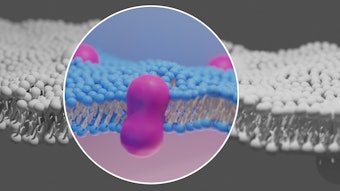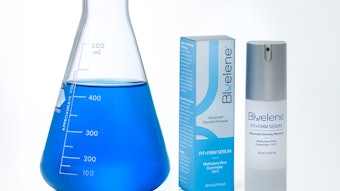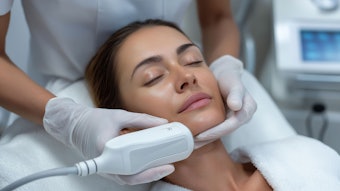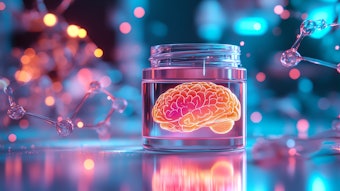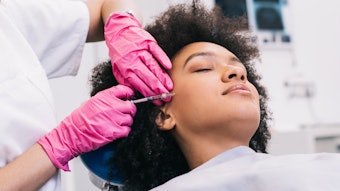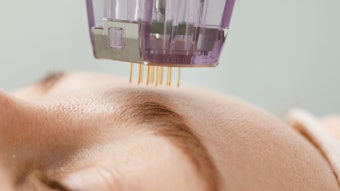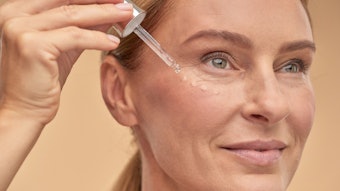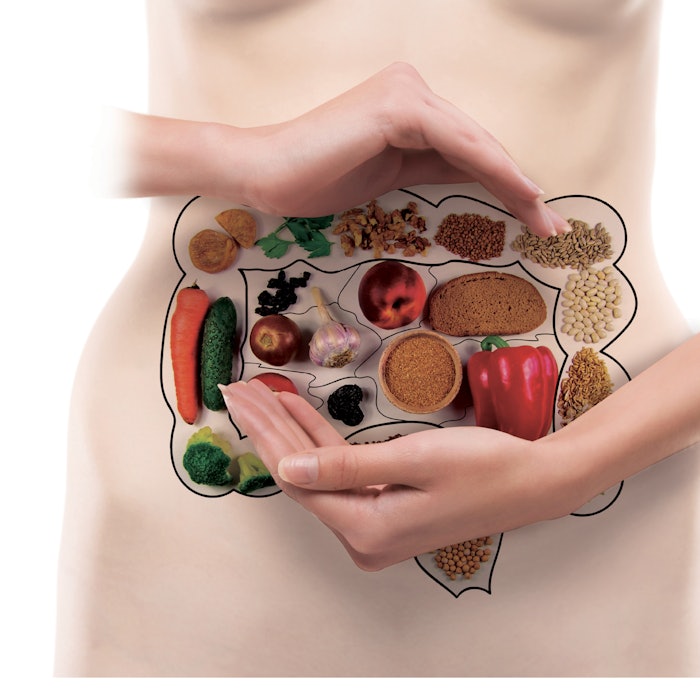
We’ve all heard the aphorism, “You are what you eat” and, of course, Hippocrates famous fourth century B.C. statement, “Let food be thy medicine and medicine be thy food.” These philosophers were ahead of their time because, today, modern science has proven these statements to be true. Foods are more than just a source of energy; the nutrients inside can help our bodies prevent and manage disease as well as the effects of aging. Here’s a secret: If we have a healthy gut, we have healthy, glowing skin!
7 Steps to Reset Your Gut in 3 Days
According to the National Institutes of Health, the ancient Indian medical system, also known as Ayurveda, is based on ancient writings that rely on a “natural” and holistic approach to physical and mental health. Ayurvedic medicine is one of the world’s oldest medical systems and remains one of India’s traditional health care systems. Ayurvedic treatment combines products (mainly derived from plants, but may also include animal, metal and mineral), diet, exercise and lifestyle.
In Ayurveda, gut health is the basis of our physical and mental well-being. A basic gut reset is often the directive given to patient to assist them in getting their gut health back on track. This whole food, three-day regimen from “Wellversed Health of India” is highly effective.
- Step 1 – Engage in intermittent fasting to give your gut time to rest and rejuvenate. A fasting window of 12 to 16 hours is recommended.
- Step 2 – Drink lots of room temperature water. Drink at least one glass of water as soon as you arise in the morning, before you consume any food. Continue to drink water throughout the day to help detox your gut and move food through your digestive tract. Room temperature water is easier on the body than cold water.
- Step 3 – Cut out sugar. Most foods are high in fat and sugar. Eat whole, unprocessed foods without added sugar. Consuming fruit such as berries is alright in limited quantities and as part of a meal that includes other fiber and fat.
- Step 4 – Include probiotics in your lunch. Bone broth or vegetable broth with added vegetables is an excellent choice. Other probiotic rich foods to consider adding to your meal include cheeses, sour pickles, bananas, soybeans, kimchi, tempeh, sauerkraut and plain yogurt with active cultures.
- Step 5 –Add fiber and prebiotics to your dinner. We seldom consume enough fiber in our daily diet. Include fermentable plant fiber strands in your diet, examples include: kale with the stems, asparagus or broccoli with a portion of the stem, apples with the skin, ginger, garlic, leeks, onions, lentils, oatmeal, legumes or beans, flaxseeds, potatoes, yams and the fibrous parts of fruit and vegetables.
- Step 6 – Relaxation through yoga and meditation. Yoga stretches can help relieve stress and produce a calm state of mind while you inhale the present and exhale the past. If you are not able to engage in at least 5 gentle yoga stretches, then spend at least 15 minutes meditating. Do either the yoga stretches or the meditation two to three times per day.
- Step 7 – Get plenty of sleep. Go to bed early. Getting more than eight hours of quality sleep per night is very important and helps overall physical and neurological health. It has a significant impact on reducing stress levels, which will give your body the rest it needs to heal and reset your gut.
Repeat these seven steps each day for three consecutive days. You will feel the positive change and will be rewarded with a healthier gut.
What is the Gut?
In order for our bodies to achieve the maximum benefit from the food we eat, we must have a healthy gut. First, let’s define what the gut is. The gut refers to your gastrointestinal (GI) system – The GI tract is a long tube known as the alimentary canal, which begins at your mouth and ends at your anus. The gut is the section of the alimentary canal between your stomach and your anus.
In an average lifetime, around 60 tons of food pass through the human GI tract, along with an abundance of microorganisms from the environment. These microorganisms are made up of bacteria, fungi, viruses and other microbes and they are vital to your health and overall wellbeing. Gut health is determined by the composition of the gut microbiome. Your gut microbiome consists of trillions of microbes that live in your intestinal tract.
To put this in perspective, your body contains more bacteria cells than human cells. According to the National Institute of Health, there are around 40 trillion bacterial cells in you and only around 30 trillion human cells. The human gut is home to as many as one thousand species of bacteria and each species has a different role to play. Most are good and important in keeping you healthy, but a few may be bad and cause disease. Altogether, these microbes may weigh as much as 2–5 pounds, which is roughly the weight of your brain. Together, they function as an extra organ in your body and play a huge role in your health.
The gut aids in the digestion of the foods you eat, absorbs nutrients and uses it to fuel and maintain your body. Your gut is also where your body gets rid of waste and toxins. If the gut isn’t healthy, your body will have a difficult time eliminating toxins. An unhealthy gut affects your immune system and hormones, making it more difficult to stay healthy. An unhealthy gut can result in a multitude of health concerns, including inflammation and chronic illness; fatigue; GI issues such as constipation, diarrhea, bloating or gas; and overall poor health. It affects our brain and our ability to think clearly – e.g., we can suffer brain fog, have difficulty concentrating and experience poor memory – and it even affects our appearance! If we have a healthy gut, we have a healthier glow and healthier skin.
The Gut Microbiome & Aging
The link between the skin and the gut is becoming clearer as research continues in this area. What we know for sure is that gut health has a direct link to aging and age related diseases. The diversity of the gut microbiome begins to decrease as humans reach their 60s. While we can’t control the number of birthdays we’ve had, we can exert some control on our biological age – the age our bodies seem to be.
Healthy aging is possible, and taking care of your gut microbiome is an excellent place to start. More than a century ago, Elie Metchnikoff, the father of probiotics, suggested that improving the gut microbiome by consuming lactic acid bacteria in yogurt could delay the cognitive decline associated with aging. Sadly, scientists pretty much ignored this theory until recently.
Studies conducted in the last decade have shown that changes in gut health due to aging are related to increased frailty and poorer overall physical health. Furthermore, studies have shown that the health of the gut microbiome of mice has an effect on their brain aging. While these studies are focused on mice, not humans, it is clear that taking care of your gut is important for a healthy brain and immune system throughout our lives.
Dr. Janet Brill, nutritionist and author explains, “An unhealthy balance in your gut microbiome results in an increase in inflammation in the body. It is linked to a host of diseases and disorders including accelerated aging of the skin. Change your gut bacteria by increasing consumption of pre- and probiotics, and your body and skin will become healthier.”
Let’s look a little closer at how a healthy gut microbiome affects our appearance. If there is an imbalance in the bacteria in our GI tract, it can manifest itself as inflammation or skin irritation such as redness or itchiness.
“The skin is the largest organ of elimination in the body,” explains Derrick DeSilva, Jr., M.D., “and your skin reflects what is going on in your gut. If your gut is ‘dirty,’ your skin is going to also be ‘dirty’ -- meaning, it can be affected by eczema, psoriasis and other issues and concerns of the skin.”
Shino Bay Aguilera, D.O., adds, “The microbiome in the gut is now considered in its entirety as an organ itself. Both the skin and the gut have reciprocal communication with each other and with the brain; therefore, the beauty within radiates outwards from a healthy gut.”
Eating a balanced diet high in probiotics and nutrients can help improve the balance of microorganisms in the GI tracts and help the skin to look and feel younger. In addition, a balanced microbiome allows us to effectively digest our food, providing our bodies with the nutritional fuel they need. It can also help us by promoting restful sleep, which is essential for maintaining a youthful complexion. Lastly, gut health directly affects our immune system. A strong immune system keeps us healthy and contributes to younger, healthier looking skin. In summary, a healthy gut can be pivotal in our anti-aging efforts.
According to Matthew Pinto, D.O., of the Center for Medical Weight Loss, "An unhealthy gut typically involves inflammation of the lining of the gut, imbalance of the microbiome and possibly microscopic holes that can leak. Studies have shown that when you have inflammation in the gut, you may also have inflammation of the skin. With a healthy gut microbiome, the good bacteria help fatty acids, which in turn make your skin hydrated, moisturized and protected."
Christopher R. Hubbell, M.D., the Founder and Medical Director of Hubbell Dermatology & Aesthetics in Lafayette, Louisiana explains:
“So much about the human body is amazing! When it comes to the relationship between the skin and the gut, we can see the intimate relationship all the way back to our early stages of development as an embryo. The gut actually develops as an in-pouching of what will wind up being the skin. So in fact, the skin and the G.I. tract are contiguous structures with a ton of structural, functional and immunological similarities. For better and for worse, what happens (somewhat unseen) in the gut can manifest on the skin. Most of us are aware that there are a variety of foods and medications that can have adverse affects that show up as a rash on the skin. Conversely, adequate hydration, nutrition and appropriate wellness nutrients and supplements (think probiotics, certain vitamins and adaptogens) can contribute to restoring, maintaining and enhancing skin and hair health, function and appearance.”
6 Ways to Improve Gut Health
This brings us to the question of how to improve your gut health. As we touched upon above, Hippocrates was correct when he said, "Let food by thy medicine and medicine be thy food." Here are six ways to improve your gut health:
- First, eat a wide variety of foods. The typical American diet is high in fat and sugar. Aim for a diversity.
- Secondly, focus on consuming fruits and vegetables, beans and legumes. They are high in fiber, which is good for your gut bacteria. Fiber encourages beneficial bacteria growth.
- Third, enjoy yogurt – plain or low sugar varieties with active cultures – and fermented foods such as kimchi, kefir, sauerkraut and kombucha. Research has concluded that these foods are rich is certain types of bacteria that are beneficial to the gut.
- Fourth, enjoy whole grains. Whole grains are high in fiber and non-digestible carbohydrates that help promote good bacteria growth in the gut. They also help with weight control, as they help you feel full longer, reduce inflammation and help reduce some of the risk factors for heart disease.
- Fifth, enjoy foods with polyphenols such as dark chocolate, red wine, green tea, blueberries, onions and broccoli. These compounds help reduce inflammation, lower blood pressure and reduce both cholesterol levels and oxidative stress.
- Sixth, both prebiotics and probiotics may help people suffering from a compromised gut microbiome. A review of multiple studies found that probiotics can restore the pH of acidic skin, reduce the impact of oxidative stress, reduce the effects of photo-aging, boost skin barrier function and improve the quality of your hair.
Improve Gut Health & Anti-Aging Results
An overgrowth of bad bacteria in the gut due to poor diet, stress, over medication or lack of sleep results in the skin becoming inflamed. “These patients present with skin diseases such as acne, rosacea, sensitivity, eczema, psoriasis, decreased elastin or collagen leading to sagging skin and much more,” said board-certified dermatologist Mayha Patel, D.O., of Torrance, California.
As an aesthetic practice, helping your patients improve their gut health makes sense. What happens in the gut reflects on the skin. To have long-term success, you must work from the inside to the outside. Treating just the skin is only part of the battle.
Helping your patients improve their microbiome also represents another profit center. By adding nutritional counseling for gut health improvement, you can help your patients improve their anti-aging results while you improve your bottom line. Adding nutritional counseling, perhaps in addition to weight management, is a win-win for your patients and your profits.
Cheryl Whitman is a celebrated author, speaker and highly regarded national cosmetic marketing professional with more than 35 years in the aesthetic medical spa industry. A cosmetic anti-aging wellness “influencer,” she is one of the most sought after speakers in the industry—mentoring all size practices and laser centers.
Ms. Whitman is the founder and CEO of Beautiful Forever Consulting, where she leads a top-notch team of executive-level consultants and business professionals to assist providers and physicians expanding their existing practices and launching new profit centers.
Ms. Whitman is also the founder of Beautiful ForeverUniversity, a member of the MedEsthetics Advisory Board and a consultant for CareCredit Healthcare Financing.
